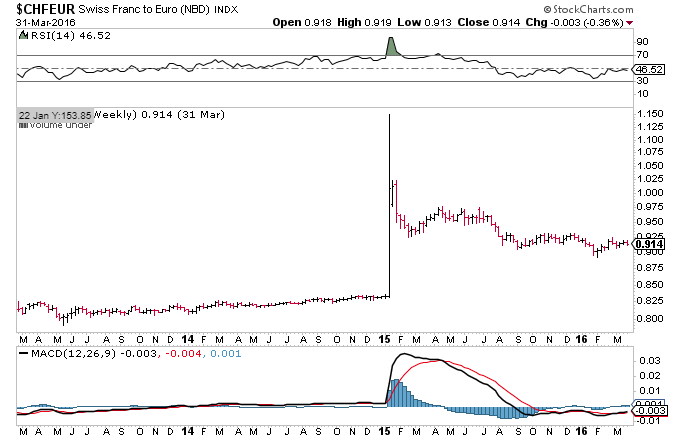Results 1 to 13 of 13
Hybrid View
-
18th Mar 2018, 04:07 PM #1
Switzerland is known as a stable, safe and prosperous nation. Surrounded by the Alps and with a reputation for neutrality, Switzerland has long appeared to be almost a world unto itself. Economically, this reputation has been enhanced by the famous secrecy of the Swiss banking system. Although Swiss banking rules have loosened somewhat in the past 10 years, Switzerland remains an international hub of private banking, insurance and investment management. In addition, Swiss citizens enjoy one of the highest standards of living in the world. (To read more about Swiss banking, see What are the Gnomes of Zurich? and How do I open a Swiss bank account and what makes them so special?)
Although the country remains outside the European Union to maintain its neutrality, Switzerland does enjoy extensive trade with its European neighbors, the United States, and other countries around the world. Switzerland is also home to large multinational corporations such as the banking giants, UBS (NYSE:UBS) and Credit Suisse (NYSE:CS), and the consumer products company, Nestle.
The Swiss Franc
Switzerland's currency plays an important role in the international capital markets. Because of Switzerland's historic political neutrality and reputation for stable and discreet banking, the Swiss franc is commonly viewed as a safe haven in international capital markets. As such, many investors prefer to hold a portion of their assets in the Swiss franc. Many other traders flee to the safety of the Swiss franc during times of international turmoil. Therefore, when volatility appears in the financial markets, investors often bid up the Swiss franc at the expense of other currencies.
Trading the U.S. Dollar/Swiss Franc
Although it is somewhat less liquid than the euro and the pound, the Swiss franc is still an easy currency to trade. In April 2016, the Swiss franc was on one side of 4.8% of all trades, which is substantial when you consider the overall size of the forex market.The factor most likely to cause large movements in the value of the Swiss franc is international political and economic instability. When either political or economic turmoil increases, investors flee to the perceived safety of the Swiss franc. When volatility decreases, the Swiss franc typically sees less interest from traders and investors.
While the Swiss franc often does rise against most other currencies during volatile periods, forecasting the relative performance of the Swiss franc versus the U.S. dollar can be difficult, because the U.S. dollar is also viewed as a safe haven during times of turmoil. Therefore, it is not always easy to determine whether the Swiss franc or the U.S. dollar will be the preferred source of safety during an international crisis. Since each crisis is unique, a determination must be made as to whether the Swiss franc or the U.S. dollar is the preferred option for investors seeking safety.
During less volatile times, traders should note that the Swiss franc has a very high correlation to the euro. When the value of the euro increases, so too does that of the franc. If investors witness a rise or decline in the euro without a corresponding move in the franc, they may want to consider initiating a trade based on the belief that the franc will eventually resume its historical correlation with the euro. (To learn about another popular pair that includes the "Swissie", see Making Sense Of The Euro/Swiss Franc Relationship.)
Although this type of relative value trade is extremely popular in the financial markets (and often profitable), traders should bear in mind that there is no guarantee that markets will revert to their historical mean. For example, on January 15, 2015, the Swiss National Bank (DNB) shocked the investment world when it suddenly announced it would no longer peg the Swiss franc to the euro. The Swiss franc skyrocketed relative to the euro, which you can see in the chart below. This event stands as one of the best examples in recent times as what happens if you get caught on the wrong side of the trade. In this case, too much leverage or poor risk management could have been enough to cause a trader’s capital to get wiped out in a matter of minutes. (For more, see: Why Switzerland Scrapped the Euro)

EasyMoney Reviewed by EasyMoney on . Popular Forex Currencies https://i.investopedia.com/inv/topics/images/active-trading-lrg.jpg The currency markets are the largest and most actively traded financial markets in the world with a daily trading volume of more than $5.1 trillion (Triennial Central Bank Survey 2016). The majority of this trading is concentrated in the world's major financial centers such as London, New York and Tokyo. Large institutional investors such as banks, multinational corporations, hedge funds and central banks constitute Rating: 5
Sponsored Links
Thread Information
Users Browsing this Thread
There are currently 1 users browsing this thread. (0 members and 1 guests)
Similar Threads
-
[GET] Learn to Trade Forex and Stocks: From Beginner to Advanced
By AliKashif7 in forum Udemy 100% FREE for LIMITED TIMEReplies: 2Last Post: 13th May 2019, 02:57 PM -
Mining of crypto-currencies on P2pool
By kryptonite in forum Mining and PoolsReplies: 0Last Post: 13th Jan 2016, 02:42 PM

















 Reply With Quote
Reply With Quote



 Staff Online
Staff Online
Vn5socks.net 05-11-2024 | Service...
Live | 198.7.56.71:58182 | United States |...